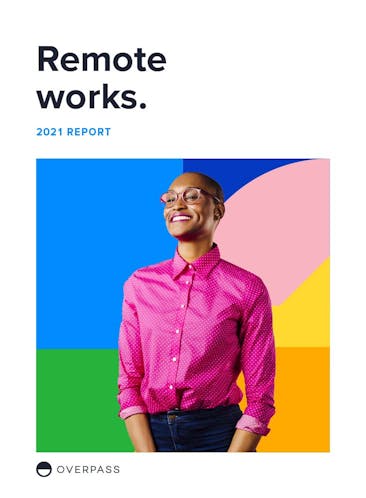Steve, a salesperson for a large software development firm, remembers the pivotal moment when he made the life-altering decision to leave the safety of his corporate job.
After nearly two years of working from home, management ordered him to return to the office. The news knocked the wind out of him. He had a series of panic attacks.
Steve came to the painful realization that he would give up the flexibility and work-life balance that he discovered while working remotely should he return.
So Steve hung out his free-agent shingle on half a dozen talent marketplaces, got an assignment in his first week, and told his employer he wasn’t returning to the claustrophobic cubicle he called home for 15 years.
In this new world of work, Steve quickly became aware that he was in the driver’s seat as there were more open positions than pre-qualified candidates to fill them.
Due to his strong track record, he commanded premium hourly rates for setting appointments. He also negotiated recurring commissions or “success” fees on sales coming through his channel.
“Sales is the lifeblood of every business. Salespeople are bailing on their employers, leaving bosses in a lurch trying to fill positions that were unstable even before the pandemic,” said Steve.
Per the most recent National Industry-Specific Occupational and Wage estimates from the US Bureau of Labor Statistics, many of the nation’s 13 million sales professionals are getting ready to bolt from their employers.
With the relentless pace of technology innovation over the past two years and the critical mass of tech-savvy millennials racing up the ranks, the market is ripe for talent marketplaces that cater to specific industries.
The sudden surge of people chomping at the bit to go out on their own provides an unprecedented opportunity for vertical talent marketplaces to grow exponentially over the next five years.
An opportunity like this, where all the stars align for companies and talent, is like a 100-year flood. Job specialization is a logical progression as the horizontal marketplaces that try to be all things to all people are losing share to more focused rivals.
The most progressive hiring managers, frustrated with the shotgun approach on Upwork, Fiverr, and job boards like Indeed and ZipRecruiter, are flocking to the niche marketplaces where they can quickly find the specific qualifications and skills they need.
“Why would I waste time and money rifling through a mountain of applicants outside of the position I need to fill?” said the owner of an Overpass client, which operates its vertical marketplace for workers in the restaurant industry. He uses the platform for sales outreach to restaurant managers to secure new job postings and make his marketplace more valuable.
Whether it’s a specialized talent marketplace for nurses, design professionals, software developers, or salespeople, focusing on one category empowers employers to find ideal hires faster, dramatically reducing cycle times to fill the open positions.
The need for vertical marketplaces has hit Hollywood too. SPACEMOB is an independent studio that creates content for streaming platforms like Netflix, Samsung TV, Tubi, Crackle, and Roku.
We find and manage many talented editors, graphic designers, animators, engineers, actors, and spokespeople through industry-specific talent marketplaces,” said Eric Keith, president of the studio.
With the talent pool and new verticals entering the space every day, hiring managers need to leap into action with more innovative and faster tactics tightly aligned with the new model.
Real-time access to pre-qualified candidates can move into the interview process in less than a week, reducing time to fill, hire, and start working.
Data from Sandler Sales Training confirms other studies that top salespeople are on the market for ten days before being recruited. That doesn’t jive with reality. The average time to hire is 57 days, adding up to many missed opportunities.
At Overpass, consultants work with hiring managers to establish timelines for all stakeholders. For instance, instead of leaving open-ended the time required to respond, hiring managers would have a short window to review the resumes and create a shortlist of top candidates to interview.
One high-level accounting executive, LinLee Vanderhoof, Regional Finance & Operations Director at Zenitel based in Norway, described her yearlong search for the ideal fit with her skill set and experience to be beyond frustrating.
Instead of placing herself in a position to market her skills as a unique solution to significant challenges that prospective employers are grappling with, she was commoditized and shoved into narrow boxes of keywords.
She said a vertical marketplace for accountants would have matched her to the proper position in weeks rather than years. This new vertical marketplace would disrupt traditional career management or recruitment agencies and its existing models of charging employers for a percentage of compensation.
“A marketplace would have allowed me to drill down into which companies are shopping my skills and find experiences that allow me to grow. It would have given me a broader range of options,” Vanderhoof said.
But starting a campaign on these vertical talent marketplaces isn’t a set-and-forget-it proposition. Hiring managers should be proactive and update job descriptions and required skills as needs change. The definition of an ideal candidate will update as data tells the story of results or a shortfall.
As with any type of advertising, make the job opportunity shine with solid creative positioning. Rattling off a laundry list of requirements and prerequisites will not resonate with your ideal candidate.
Since it is a freelancer’s market, tell them why your company is a phenomenal place to work in a bathrobe or a three-piece suit. But whatever you do, craft a generous compensation plan and set an hourly rate that attracts the highest quality candidates.
The hourly rate gets you in the door, but it’s the sense of belonging and having “skin in the game” that attracts and retains the best and brightest talent.
To cut to the chase, it means that traditional principles of aligning your strategic objectives with the worker’s wallet, a collaborative learning culture with advancement opportunities, and a level playing field all apply in the digital workplace of the future.
Vertical marketplaces like Overpass need to add value beyond job openings and candidates. As Quickbooks does with banking, invoicing, payments processing, and tax consulting, it pays to support the success of the client’s virtual sales organization by offering training and development to hiring managers and its freelance salesforce.
“Finding and hiring contract talent can be a huge drain on a business’s resources,” said Melanie Deziel, Co-Founder and VP of Marketing for The Convoy. This venture-backed startup provides group buying opportunities for its members.
Since most small businesses cannot afford to fund a team to handle hiring and procurement, a group buying service could add tremendous value to a vertical talent marketplace. New integrations with value-added platforms are imminent in three to five years.
By tapping into collective buying power and helping small companies achieve the economies of scale of larger companies, market participants can boost profit margins substantially.
As in all marketing, competitive differentiation is vital. No one that’s too good to work for someone else except as a hired gun will be excited to talk to an also-ran in a declining industry. They want to grab a tiger by the tail.
Paint a picture of growth and advancement opportunities to move up and scale the operation where they play a role in its success.
Then schedule all your interviews in one day, so the information you gathered is fresh in your mind. At that point, nothing can stop you from making an intelligent hiring decision that same day, decreasing interview cycle times from 15 days to a matter of hours.
The onboarding process is another bottleneck that slows hiring managers down. On Overpass, clients load scripts, training and development guides, sales, and marketing materials before the hiring decision.
If a candidate is currently employed elsewhere but just gave their notice and can’t work for two weeks, save substantial time and money onboarding them after hours, provided you comply with local laws.
Distribute company information, scripts, training, industry profiles, and competitive positioning materials so new hires can hit the ground running. Internal data from Overpass shows that hiring managers can reduce the time to hire by ninety-one percent.
As more hiring managers and talent migrate to the platform, the value of Overpass and other vertical marketplaces increases. At the risk of geeking out, this phenomenon is called The Network Effect in computer science and economics.
The network effect directly correlates with users deriving more value as new users join the network. Technology and the flood of available talent push the industries and companies that operate in these spaces to be more efficient, effective, and profitable.
Steve is now with Overpass and is a top 1% freelancer, earning more hourly than he has ever made in his cubicle career. He doesn’t get panic attacks anymore.



